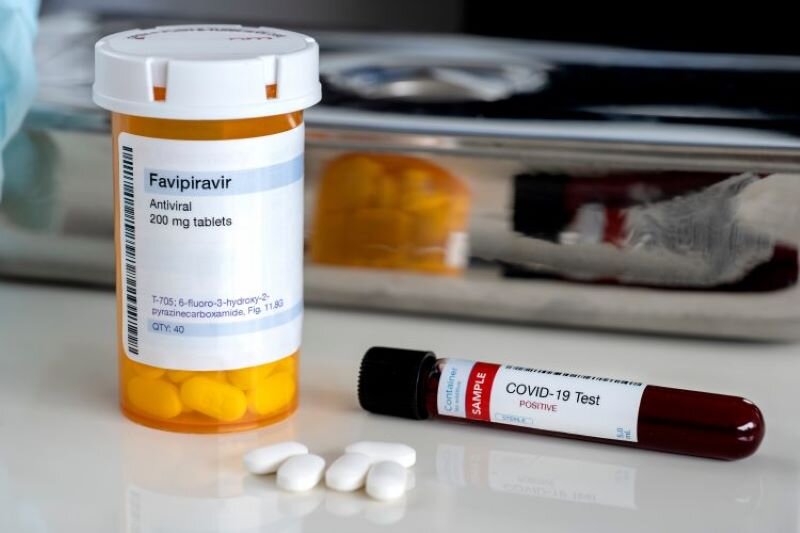Iran starts clinical trial on effectiveness of coronavirus drug

TEHRAN — Iranian medical authorities have agreed on carrying out a clinical trial on the effectiveness of favipiravir, a drug originally used in Japan for the treatment of new types of influenza.
Shahid Beheshti University of Medical Sciences has announced that a clinical trial began by Tehran’s Masih Daneshvari hospital on Sunday aimed at determining favipiravir’s effectiveness in treating patients infected with COVID-19.
Favipiravir, also known as Avigan, was developed by Fujifilm Toyama Chmical in 2014 used for the treatment of new strains of influenza.
The announcement underlines that efforts for drug synthesis as well as the pharmaceutical formulation of favipiravir have been invested in Iran since early March and the drug will be domestically produced in the country should the trial demonstrate its effectiveness in relieving symptoms caused by coronavirus.
Zhang Xinmin, director of China's National Center for Biotechnology Development, said on March 17 that favipiravir had shown encouraging outcomes in clinical trials in Wuhan and Shenzhen involving 340 patients.
He said those who were given the medicine in Shenzhen turned negative for the virus after a median of four days after becoming positive, while it took a median of 11 days for those without the drug, NHK reported.
“The trial also found that X-ray photos confirmed improvements in lung conditions in about 91 percent of the patients who were given the medicine. The number stood at 62 percent for those without the drug.”
“It has a high degree of safety and is effective in treatment,” Zhang highlighted.
According to the Mainichi, Japan’s National Daily, Clinical research using favipiravir on novel coronavirus disease patients with mild to moderate symptoms began in March in the country, in the hope that the medication will be effective in preventing the virus from multiplying in patients’ body.
Nevertheless, an individual related to Japan's Ministry of Health Labor and Welfare has said that "We've given Avigan to 70 to 80 people, but it doesn't seem to work that well when the virus has already multiplied."
Moreover, care is said to be needed when women who could be pregnant or men who are trying to have children, as it can subsequently cause deformities in fetuses.
Solidarity trial
Since the pandemic has started to take a toll on almost all countries worldwide World Health Organization has set up an international trial, also known as solidarity trial, which is comparing four treatment options to assess their effectiveness against COVID-19. Involving all countries affected by the virus in one trial instead of multiple small trials will generate strong evidence needed to determine the effectiveness of potential treatment.
Furthermore, according to WHO, while randomized clinical trials normally take years to design and complete, the solidarity trial will reduce the time taken by 80 percent.
As of March 27, over 70 countries have already confirmed they will contribute to the trial, with many others in the process of joining.
Based on evidence from laboratory, animal and clinical studies, the following treatment options were selected: Remdesivir; Lopinavir/Ritonavir; Lopinavir/Ritonavir with Interferon beta-1a; and Chloroquine or Hydroxychloroquine.
Remdesivir was previously tested as an Ebola treatment. It has generated promising results in animal studies for Middle East Respiratory Syndrome (MERS-CoV) and severe acute respiratory syndrome (SARS), which are also caused by coronaviruses, suggesting it may have some effect in patients with COVID-19.
Lopinavir/Ritonavir is a licensed treatment for HIV. Evidence for COVID-19, MERS, and SARS is yet to show it can improve clinical outcomes or prevent infection. This trial aims to identify and confirm any benefit for COVID-19 patients. While there are indications from laboratory experiments that this combination may be effective against COVID-19, studies done so far in COVID-19 patients have been inconclusive.
Interferon-beta-1a is used to treat multiple sclerosis.
Chloroquine and hydroxychloroquine are very closely related and used to treat malaria and rheumatology conditions respectively. In China and France, small studies provided some indications of possible benefits of chloroquine phosphate against pneumonia caused by COVID-19 but need confirmation through randomized trials.
APN01, a would-be promising drug for COVID-19
WHO has stated on numerous occasions that there are no medications for the treatment of COVID-19 and all drugs used for the treatment of the patients are still under trial.
So far, all the drugs used for reducing symptoms associated with the virus were originally prescribed for other conditions such as HIV or malaria, but they have shown some positive effects on the treatment of COVID-19 as well by either shortening the duration of the virus or preventing it from replication at early stages.
However, according to the trial site news, the University of British Columbia investigator-led an international team that has discovered an experimental drug that effectively blocks the cellular door to SARS-CoV-2 used to infect its hosts.
This multinational research effort concludes that an investigational treatment called APN01 (recombinant human angiotensin-converting enzyme 2 or rhACE2) may be capable of inhibiting COVID-19 by reducing the SARS-CoV-2 load that penetrates the lungs and other organs. A Vienna Austria-based biotech named Aperion Biologics will now take APN01 into clinical trials in Europe.
Worldwide, there are over 1.1 million confirmed cases of coronavirus and nearly 63,000 deaths are reported. The pandemic has affected 209 countries, areas or territories.
While the world is hoping and striving for the best treatment option as well as a vaccine to minimize or stop deaths as well as decreasing economic consequences brought about by the luck downs we all still have to stay at home as much as possible, practice hand hygiene and cough etiquette to both protect ourselves as well as others, especially vulnerable individuals, to limit the virus transmission and reduce the pressure on the health system.
MQ/MG
Leave a Comment